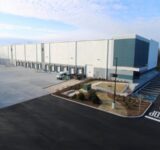The Statehouse in Trenton
By Michael G. McGuinness
With August coming to a close, many of us have been squeezing in those vacations and getaways before temperatures drop and the busy season envelops us. The state Legislature was on summer break and the governor was on vacation abroad, which had mercifully given us all a break from the vitriolic headlines. The tone will change after Labor Day since all 80 seats in the New Jersey Assembly are up for election this fall. It may also mean that very little substantive legislative work gets accomplished prior to Nov. 5. Traditionally, the “lame duck session” that runs from Nov. 6 until mid-January 2020 is the time that many targeted bills move quickly through committee and ultimately to the governor’s desk for enactment. I suspect it may be a lot quieter this year, given the continuing policy paralysis of our decision makers in Trenton.
 Many signs are pointing to a course correction sooner than later —12 to 36 months, though it may be a soft one. Uncertainties stemming from federal trade policies and rising tariffs on imports, especially from China, will continue to dampen investments by the business sector. Fortunately for New Jersey and other East Coast states, our shipping economy is diversified with the exposure to China being only 32 percent of 2018 imports. We also have a very strong consumer sector. So, it’s understanding that many would view a downturn as surprising, given the seemingly resilient economy with record low unemployment rates (3.5 percent in New Jersey and 3.6 percent nationwide), modest uptick in wages and rising corporate earnings.
Many signs are pointing to a course correction sooner than later —12 to 36 months, though it may be a soft one. Uncertainties stemming from federal trade policies and rising tariffs on imports, especially from China, will continue to dampen investments by the business sector. Fortunately for New Jersey and other East Coast states, our shipping economy is diversified with the exposure to China being only 32 percent of 2018 imports. We also have a very strong consumer sector. So, it’s understanding that many would view a downturn as surprising, given the seemingly resilient economy with record low unemployment rates (3.5 percent in New Jersey and 3.6 percent nationwide), modest uptick in wages and rising corporate earnings.
Our world entered a low interest rate environment following the 2008-09 financial crisis in order to stimulate the economy and prevent deflation. We’ve been in a sustained, though muted, economic expansion ever since. These policies have driven more investors into commercial real estate for a better yield. However, these financiers and developers will not undertake high-risk investments without a compelling reason. Unfortunately, messaging from Trenton over the last several months, “airing dirty laundry” and delayed payments to business tenants that are due Grow New Jersey incentive tax credits and developers and investors that are due Economic and Redevelopment Growth grants, along with delayed responses from the Economic Development Authority regarding Grow and ERG applications submitted prior to the June 30, 2019 deadline, are scaring away legitimate businesses from setting roots in New Jersey. Businesses need certainty and clarity. Why don’t we pivot the conversation to one about how to make robust investments in our people and infrastructure without any further distractions and political roadblocks?
Nevertheless, recent reports show that market fundamentals continue to improve for the office sector with vacancies ticking down and rents rising slightly. More young adults are also trending back to the suburbs — either to start their own families or move back with parents since they can’t afford to live on their own. Either way, the suburban talent pool is growing and businesses are following, many in the life sciences, pharma and research and development sector, as capital chases talent. Most of these investment decisions were helped along using local and state incentives. Much of the vacant suburban office space (stranded assets) had been owned by institutions and is now being purchased by entrepreneurs. Successful redevelopment of these sites as job and mixed-use centers, however, remains quite challenging due to antiquated land use standards and zoning, lack of amenities and limited access to transportation and mass transit. These constrained sites accentuate the need for transportation management agencies and pooling of resources by commercial real estate property owners to help commuters connect for the last mile.
Being an optimistic Jersey fan, I believe that none of our challenges are insurmountable. Let’s give employers, investors and the younger generations a reason to invest here. Following are a few of the action items discussed at a recent meeting of industry advisers that could make a big difference:
- Fully implementing the NJ Transit Real Estate Economic Development and Transit-Oriented Development Act to better manage and monetize their assets to generate more non-fare revenues through fee simple sales of their assets or lease-back transactions with private developers. Revenues would be used to: enhance riders experience, upgrade and modernize infrastructure and provide faster, safer and more affordable service for commuters.
- Spreading general awareness and educating the business community to the meaningful grant monies that are available to employers through federal apprenticeship programs that can be used to retrain the multitude of unemployed or under-employed people for jobs in advanced manufacturing, coding, logistics and more.
- Municipal Success BMPs: Sharing information among municipalities on best management practices that helped to revitalize their communities by increasing their job base, increasing their younger population, rezoning, consolidation, infrastructure improvement and/or other redevelopment-related challenges.
What investors want is certainty, clarity and a good return on investment. What is New Jersey’s value proposition? I would love for our Legislature and governor to come up with a unified answer for our businesses and residents on why they should choose New Jersey over another state.
Michael McGuinness is CEO of NAIOP New Jersey and has led the commercial real estate development association since 1997. NAIOP represents developers, owners, asset managers and investors of commercial, industrial and mixed-use properties, with 830 members in New Jersey and over 19,000 members throughout North America.










